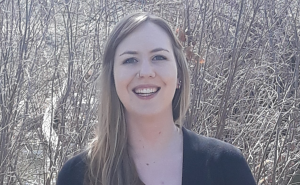Kaetlin Henderson is a student in the Josef Korbel School of International studies, graduating this November with her Bachelor’s Degree. She has been able to study International Studies and German as an undergraduate student, and secured an internship as an English Second Language Teacher for ProGente Connections. She was able to gain experience in helping and human services and has inspired her career choices in the future.
Tell us a little bit about your role and responsibilities in this position.
As an English Second Language Teacher, I taught English to Brazilians living in the United States. As a result of COVID-19 measures, I did this work mainly online. I taught two groups classes and did one-on-one tutoring with two individuals through Zoom.
What is your biggest takeaway from this experience?
My biggest takeaway from this experience is that I think people need to be more aware of those who are not only left behind when things are going well, but who are also left behind in times like these. This pandemic has hit the most vulnerable populations, immigrants being one of those groups. I think it was important for me to do not only do something that I enjoy doing, but also help out communities with the skills and resources that I have. This experience made me realize that something as seemingly simple as teaching a language can have long-lasting impacts on a person’s life.
What are your next steps for your career and professional journey? What do you plan to do after graduation and/or how has this experience helped clarify your goals?
I have applied for a Fulbright Grant in Germany to be an English Teaching Assistant next year. This internship experience has helped me realize the relationship between language skills and integration. It also clarified my specialization for my future Master’s degree. I hope to study either Migrant and Refugee Studies or Intercultural Communication. I plan to work in Germany with migrants and refugees and work to make education and language classes more accessible.

